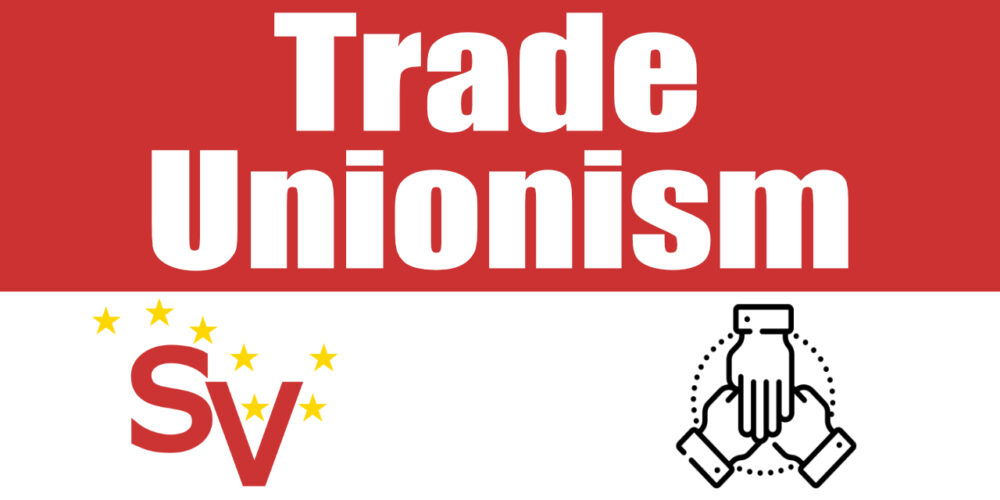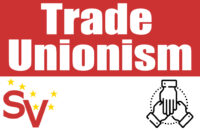The recent report by the High-Level Group on Collective Bargaining is an opportunity for the trade union movement, and for workers seeking to collectively organise and unionise. It will absolutely not solve the declining density and power of the movement, but if made use of it may present an additional route or mechanism for workers, and their unions, to negotiate and bargain with employers.
The group that produced this report, chaired by Prof. Michael Doherty, included both ICTU and IBEC. Doherty is a well-known industrial-relations and employment law academic who has been critical of social partnership on a number of occasions, including an excellent talk given for the Trade Union Left Forum, which readers may be interested in listening to on the Spark podcast (tinyurl.com/ypkajdkr).
This group was given the following terms of reference by the Government:
- Examine the issue of trade union recognition and the implication of this for the collective bargaining processes.
- Examine the adequacy of the work-place relations framework supporting the conduct and determination of pay and conditions of employment, having regard to the legal, economic and social conditions in which it operates.
- Consider the legal and constitutional impediments that may exist in the reform of the current systems. In doing so, the group will need to be cognisant of the individual employment rights frameworks and the EU context. It may wish to consider other models of employee relations and pay determination established in other member-states.
- Review the current statutory wage-setting mechanisms and, where appropriate, make recommendations for reform.
Leo Varadkar has stated that the Government intends bringing forward legislation to make this report law by the end of next year. This, of course, was also conducted against the backdrop of an EU directive on minimum wages and collective bargaining, approved in September, with states given two years to transpose, that mandates governments to encourage collective bargaining for wage-setting and requiring a plan to try to bring collective bargaining on wages up to an 80 per cent threshold.
In regard to work-place bargaining, the report states that it wanted to develop “a process to encourage and facilitate good faith engagement between trade unions and employers at enterprise level, where a trade union has organised members in the enterprise, but where the employer does not engage in collective bargaining…” This is positive commitment for workers seeking to unionise.
The report notes that there should be a process for compelling and imposing an obligation on employers to engage with unions but not necessarily to reach an agreement. This again seems a significant step forward in creating a better legislative environment for workers seeking to unionise.
The report, as described by Prof. Doherty at the recent IRN Conference, sets out its main findings on company-level bargaining as this. Where an employer does not engage in collective bargaining and the union, with a threshold (10 per cent) of membership, requests engagement on pay or terms and conditions of employment, the employer must engage in good faith. This engagement is defined in the report as meaning
- attending, and participating in, any meeting within a reasonable time;
- giving genuine consideration to representations made by the other party;
- providing any relevant information (other than confidential or commercially sensitive information) in a timely manner;
- giving a clear, considered and reasoned written response to representations made by the other party following a good-faith meeting within an agreed time;
- the parties should be responsive, and must not do anything likely to mislead or deceive each other;
- the size, composition and representative nature of the union and employer representatives should be reasonable and balanced between the parties;
- refraining from capricious or unfair conduct (this could include, for example, refusing to meet, or discuss with, properly nominated representatives of the other party, penalising an employee because of trade union activity, interfering with the process of the parties’ nomination of their independent representatives, unduly hurrying the engagement to prevent proper consideration, or taking extreme positions with the intention of shutting down the engagement).
- Each party should be responsible for making its own record of discussions held.
To kick-start this process the union must write to the employer. Should the employer ignore or refuse this, or not engage in good faith, the union can make a complaint to the Labour Court, which, after hearing this complaint, will issue a recommendation with a course of action that must be taken. If the recommendation is ignored, the Labour Court will issue a determination, and this will be enforceable through the Circuit Court, with accompanying pecuniary penalties.
On the face of it, this for the first time gives workers in a union, and their union official, a mandatory mechanism for meeting the employer and attempting to negotiate improved conditions at work.
That is progress. It is an opportunity. It certainly does not absolve the trade union movement of its responsibility to organise—far from it, in fact: it now places the responsibility for the future of the movement firmly on the shoulders of the movement itself. For this opportunity will only be of value if the movement invests significant time, resources and energy in the organisation, structurally, of workers in their work-place so that they are strong, willing, and able to invoke this mechanism.
Let us look forward to driving this empowerment of workers.






